Spark empathy in young hearts! Download our set of printable empathy games specially crafted for year 1 and 2 students.
How to Teach Empathy to Kids
Teaching empathy to children is a crucial life skill that fosters emotional understanding and connection with others. Here are some effective ways to cultivate empathy in kids:
Model Empathetic Behavior – One of the most powerful ways children learn is by observing the actions of those around them. By exercising empathy in your daily interactions, you can model understanding, kindness and compassion to your students.
Emotion Identification – Empower your students to understand and express their emotions. Foster their ability to recognize and respond to the emotions of others. Engage in meaningful conversations about emotions and ask thought-provoking questions such as, ‘What emotions do you think they are experiencing?’ or ‘How would you respond if you were in their shoes?’ to encourage empathy.
How to Play Our Empathy Games
If you are looking for another way to teach empathy to the students in your classroom, games and activities may also be a good option! Teach Starter has created 4 different printable SEL games to help students develop their empathy skills.
Check out this quick guide on how to play each of the games included in this teacher-created resource!
Empathy Scavenger Hunt
This familiar game (similar to ‘Find a Friend Who’) has 12 boxes with different life experiences. Some of these scenarios include feeling lonely, losing a game and losing a favourite toy. Students must walk around the room and find a classmate who has experienced one of the situations. They will then write the name in the corresponding box. If time allows, encourage students to respond to each person with empathy about the situation they experienced.
Empathy Roll and Cover
With this dice game, students will roll the dice, name the emotion in the row and colour it. Students will repeat this process until all faces have been coloured. This game will help students identify emotions in others, a foundational skill of being empathetic.
Empathy Roll and Respond
This dice game is played by students rolling a single die, looking at the prompt and answering it. Some of the questions include:
- What does empathy mean to you?
- Describe a time someone showed you empathy.
- How can you show empathy?
Empathy Tic-Tac-Toe
Students will ask a partner to choose an open space and say a sentence about the scenario. They will then guess how they were feeling and draw that emotion. Repeat until you get 3 in a row!
Download, Print and Play!
If you are ready to use some of these SEL games in your classroom with your students, head on over to the green download button and choose from the quick-print PDF file or the editable Google Slides document. If selecting the Google Slides option, please note that you will first be prompted to make a copy of the resources to your personal drive before accessing it.
This resource was created by Lindsey Phillips, a Teach Starter Collaborator.
More SEL Resources For Your Classroom!
Don’t stop there! We’ve got more activities and resources that cut down on lesson planning time:
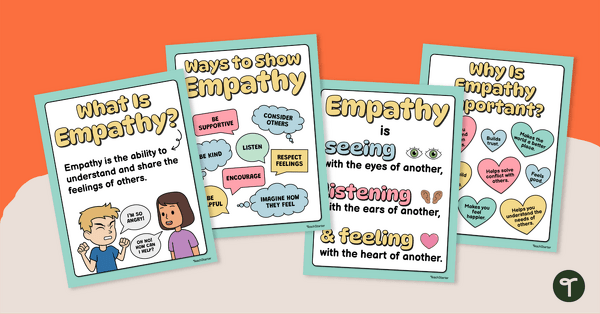
teaching resource
Empathy Poster Set
Enhance student understanding of empathy and why it is important with this set of 4 classroom posters.
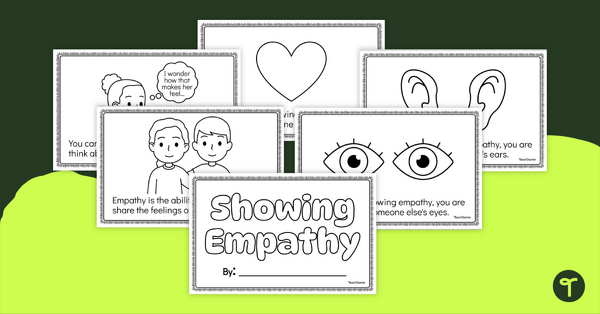
teaching resource
Showing Empathy Mini-Book
Empower young minds and hearts with the gift of empathy! Download this free SEL mini-book designed for year 2 and 3 students.
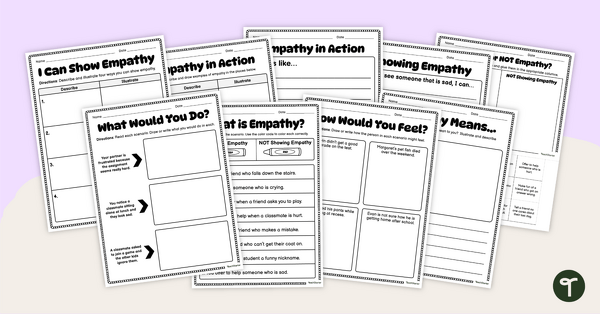
teaching resource
Empathy Worksheet Pack
Unlock a world of empathy with our SEL worksheet pack – download now and embark on a journey to nurture kindness and understanding with your students.
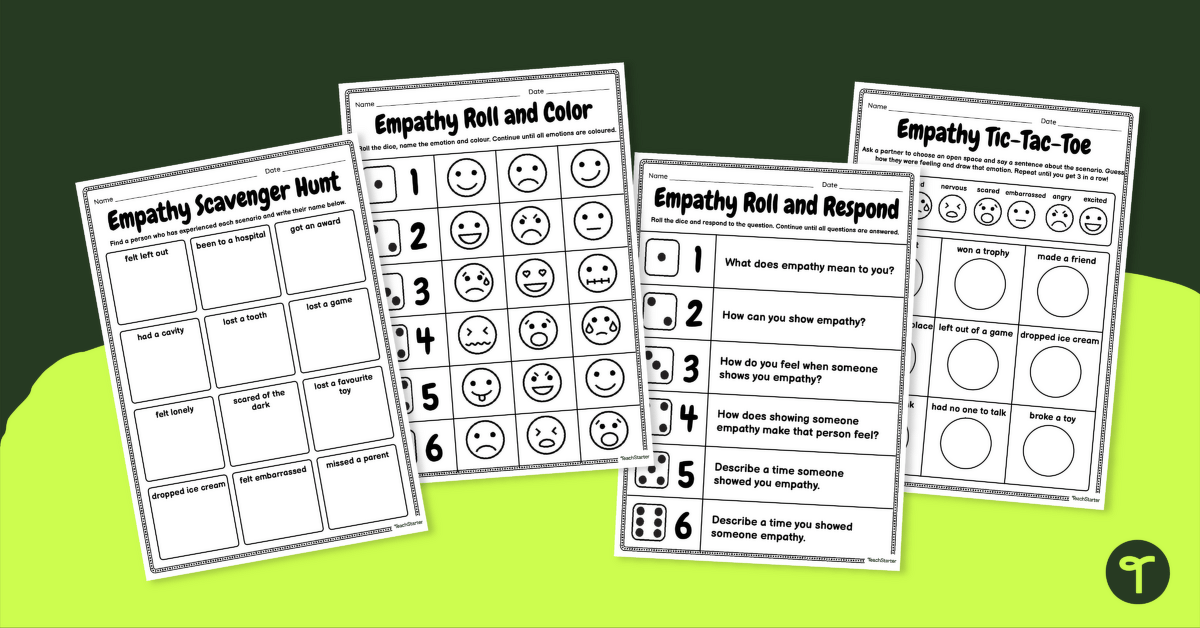

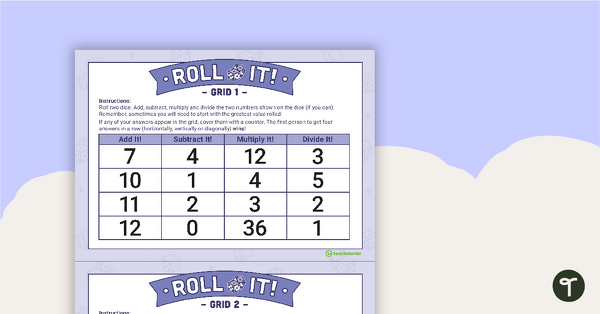
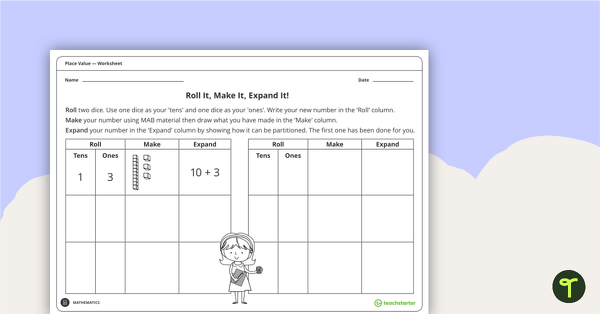
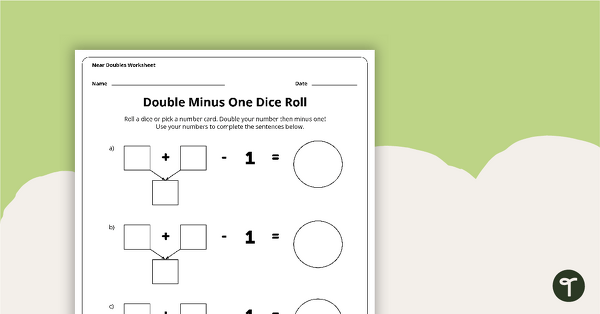
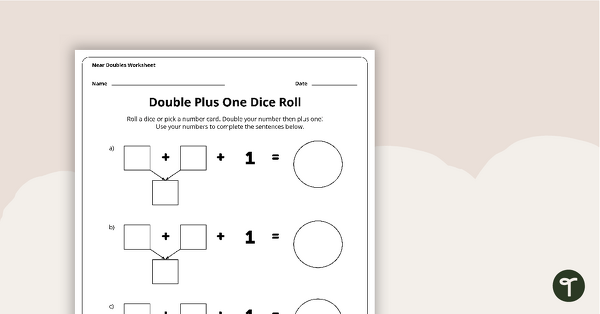
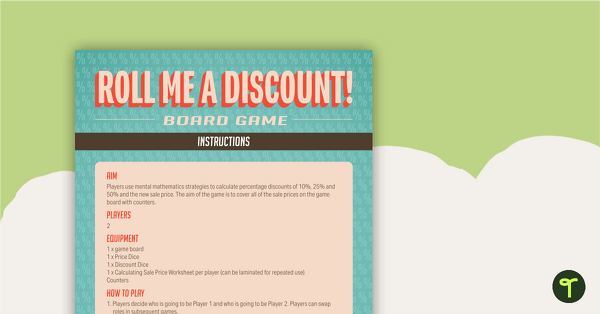
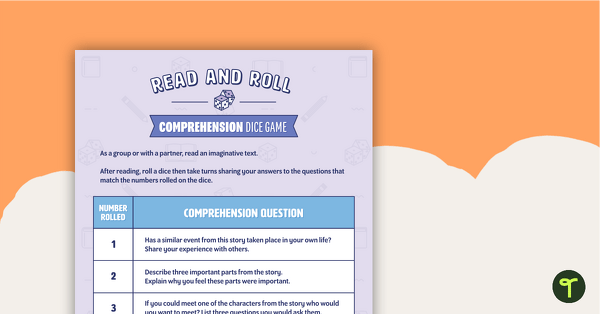

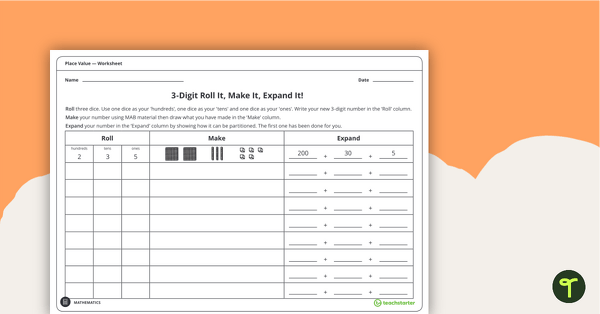
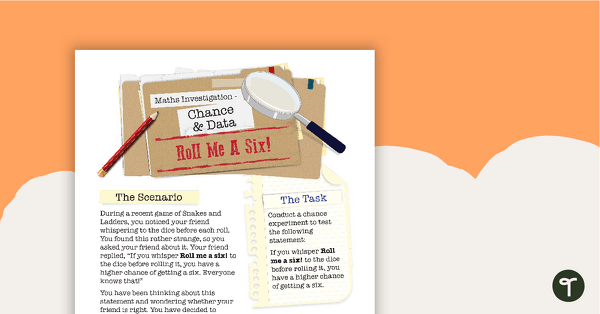
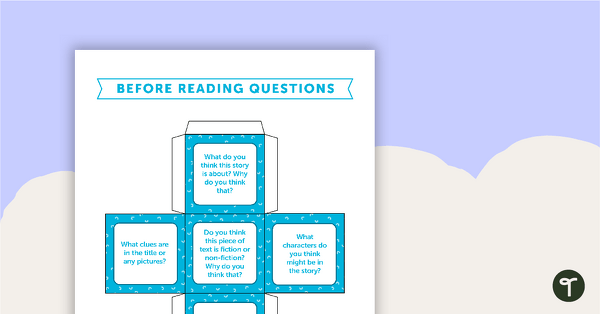
0 Comments
Write a review to help other teachers and parents like yourself. If you'd like to request a change to this resource, or report an error, select the corresponding tab above.